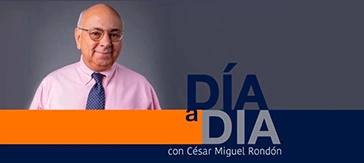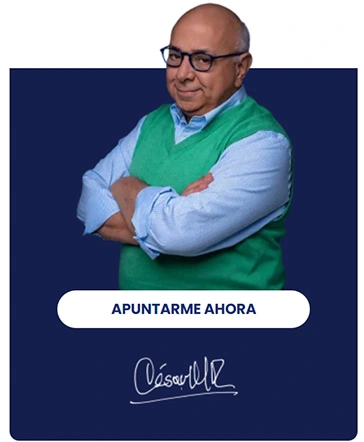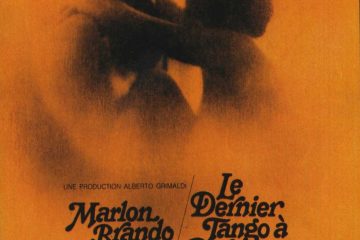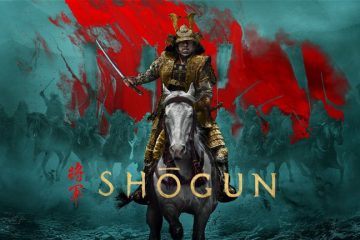 On Tuesday, a helicopter-riding gunman threw grenades at the Supreme Court building in downtown Caracas. No one was injured. In a video later posted online, the alleged attacker, Oscar Perez, a former police captain and B-movie actor, and a group of gun-toting masked men declared that they represented the military, police, and civilians who oppose Nicolas Maduro, the president of Venezuela. They urged their fellow countrymen to continue their rebellion against his tyranny. Yet many argue that this was a staged plot of Maduro’s making, a way of excusing further repression. In particular, they refer to the fact that the military aviation forces, or the recently imported Russian air-defense missiles, simply stood still. That they let Oscar Perez fly away free.
On Tuesday, a helicopter-riding gunman threw grenades at the Supreme Court building in downtown Caracas. No one was injured. In a video later posted online, the alleged attacker, Oscar Perez, a former police captain and B-movie actor, and a group of gun-toting masked men declared that they represented the military, police, and civilians who oppose Nicolas Maduro, the president of Venezuela. They urged their fellow countrymen to continue their rebellion against his tyranny. Yet many argue that this was a staged plot of Maduro’s making, a way of excusing further repression. In particular, they refer to the fact that the military aviation forces, or the recently imported Russian air-defense missiles, simply stood still. That they let Oscar Perez fly away free.
The mysterious helicopter became a symbol of hope for the many frenzied Venezuelans following it on social media. Their hope was rooted not in the possibility that the collapse of the Maduro government was near, or that its internal military support was cracking, but of something more precious and desperate: That something was at last happening. Unfortunately, once the dust settled and the farce was exposed, it became quite clear that the status quo prevailed. Nothing, in the end, had really changed for Venezuela.
After 80 days of protest in Venezuela, at least 76 people, mostly students aged from 17 to 26, have been killed. They protest Maduro’s two-pronged coup d’etat—first, his rejection of an overwhelmingly popular recall referendum last October, then his calling for a new constitution with a blatant dictatorial bent this May—with a degree of desperation unseen in Latin America in a generation. We thought military dictatorships were a thing of the past. But at least in Caracas, they are back with a vengeance.
In a country with more generals than the United States and more oil than Saudi Arabia, this infant dictatorship is in a class of its own. Though stemming from a left-wing ideology, it has none of the legitimacy of Castro’s revolution, which was fueled by rhetorical combat with the United States—indeed, it is defined by its own revolutionary hypocrisy.
Despite following the largest oil-boom in history, Venezuela is scraping for cash to pay for its imports and service its debt, a situation which just two weeks ago forced it to turn to Goldman Sachs, the bogeyman of left-wing governments everywhere, to sell some bonds for a few cents on the dollar. Many of its military strongmen and senior ministerial figures, including Vice President Tareck el Aissami, have been accused by the U.S. Drug Enforcement Agency of drug-trafficking. (They deny wrongdoing.) The functions of the Venezuelan “state” have been reduced to the distribution of food and medicine to those who are loyal, the daily repression of those who are not, and the monthly sacrifice of all oil income for the sake of servicing sovereign bonds. The regime’s only macroeconomic plan involves feeding and maintaining the black markets—for dollars, oil, food, and medicine—which mainly profit those in the military, in return for their feudal loyalty to the regime. The military, the “Colectivos” paramilitary militia, and the Supreme Court, hold all the real power in Venezuela. Knowing they have everything to lose if ousted, they will not let go.
Facing this disparate force are three different groups which generally constitute what, following 20 years of chavismo, is traditionally known as the Opposition. First, there is the class of professional politicians, castaways of the erstwhile traditional political parties that Hugo Chávez swept aside during his populist presidency, who make up what is called the Mesa de la Unidad Democrática (MUD), or “Table of Democratic Unity”— a curious name, in fact, as the group is neither particularly united, nor internally democratic. The MUD is famously known for being locked in constant negotiations and compromises among its members. Its key members include former presidential candidate Henrique Capriles and Julio Borges, leader of the current National Assembly. Their key common ground is their shared rejection of chavismo. Yet in practice, distrust abounds: Reportedly, some of its more senior members secretly covet the presidency and have previously betrayed each other. (Imagine Democrats and Republicans, suddenly swept away into a minority, joining forces against a rogue President Trump. A dysfunctional marriage would result—they would fail, too.)
This professional class has tried to lead the protest, but it lacks the popular legitimacy to bring all segments of society under its umbrella—and, crucially, a single leader to guide it. Beyond calling in unison for civic disobedience, it displays little of the creativity needed for the campaign ahead, despite the real possibility that some of its members might have very clear ideas of what to do. For example: Privately, some of them, have been open to an internationally backed deal to unblock the presidential elections. Meanwhile, others publicly denounce such an option. This has created a situation where the ball, kicked from all sides with equal force, remains in place.
Last June, I had coffee with a friend in downtown Caracas. Three blocks away, people lined up in a long queue snaking out of a large supermarket; the line had reached the sidewalk in front of us. In the hour we sat and talked, the line barely moved. Those waiting grew sweaty from the heat and their frustration. When, I asked myself, will they become desperate enough to look our way? To see that, despite the scarcity, there is food here, too. That with a state so porous, so full of impunity, they can come here too to feed their children, smashing glass to survive. That the law and the state condemns them to death, that to break them it is to live.
When? If nothing happens, soon.












Un comentario
Your advice is very useful.